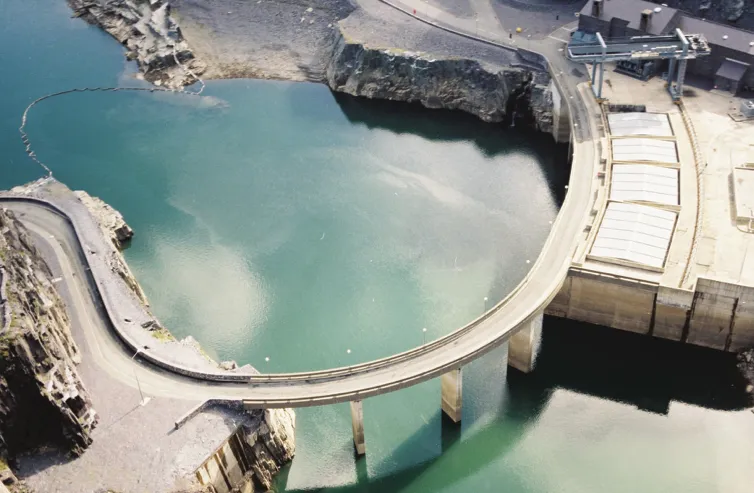ISO50001 certification puts energy management at top of the agenda for unique hydro generation plant.
Background
First Hydro Company (FHC) operates two pumped- storage hydroelectricity facilities in North Wales – Dinorwig and Ffestiniog. These plants provide rapid-response power to National Grid at times of system stress or intermittent power supply; for example, when changing wind speeds affect wind farm output. A £50 million refurbishment programme is underway to upgrade the Ffestiniog power station, improving its speed of response, reliability and efficiency.
ISO50001 cerfification
ENGIE, which owns 75% of FHC, is committed to working with its partners to make zero carbon happen, and to support this purpose it has achieved the ISO50001 energy-management certification at this significant site. FHC is responsible for 65% of total energy use within the ENGIE Group in the UK, so achieving the certification here was a top priority. In addition to helping the FHC plants reduce carbon emissions and costs, achieving ISO50001 would ensure ENGIE complied fully with UK legislation, including the Energy Savings Opportunity Scheme (ESOS).
“Achieving the ISO50001 certification brings considerable benefits to our plants. It will raise the profile of energy throughout the organisation, and highlight the need for efficiency. “There will be economic benefits through reduction in our energy costs, and it will ensure we play a part in supporting ENGIE to reduce its own carbon emissions. “This, combined with our refurbishment programme, will ensure our unique hydro pump storage facilities continue to deliver valuable capacity to National Grid, while supporting wider efforts to eliminate carbon from UK energy markets.”
John Armstrong, Station Manager, First Hydro Company
A staged approach
ENGIE managed the certification project for FHC. A stage 1 audit was completed, and energy- management systems were developed for the plants. ISO50001 is a comprehensive standard, so every clause needed to be addressed ahead of the stage 2 audit. The initial audit identified a raft of energy-saving opportunities for the plants. Plans were put in place to pursue these opportunities and set targets, so that progress could be monitored annually in order to maintain the certification. The energy-saving opportunities identified included upgrading the lighting, heating and ventilation systems, improving the efficiency of cooling water pumps and generator motor cooling fans, repairing and refurbishing pumping equipment, and other measures requiring varying degrees of capital investment.
Taking action
As part of its work, ENGIE proposed an action plan to target non-conformities ahead of the assessment deadline. Within a short period, a host of processes and policies were implemented to meet the requirements of the certification, including energy and procurement policies, energy data collection and analysis protocols, training, awareness and communication requirements, management responsibilities and internal audit processes.
Thanks to the support and auditing by ENGIE and the FHC team, the business sucessfully passed the stage 2 BSI audit and was declared fully compliant with ISO50001
Continuous efficiency
For FHC, the certification means its operational processes will now be continuously monitored and improved to optimise energy use. Energy management will now be a primary consideration in any decisions made at the plant, from how it is operated and managed day-to-day, through to investment decisions. A team of people, including the station manager, now have responsibility for maintaining the focus on energy management and ensuring the plant constantly strives to improve its efficiency. Progress will be measured annually against agreed benchmarks, which take into account fluctuating demand for the plant’s output from National Grid.
For further information please contact
marketing.es.uk@engie.com
